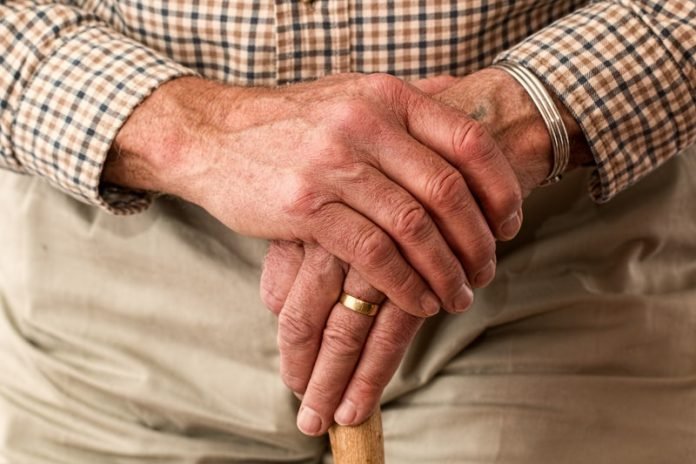
In a new study from the University of Alberta, researchers found that urinary incontinence could be a contributing factor in falls among older adults.
They showed for the first time that the feeling of having to pee acts as a distracting factor that increases the risk of falling.
Falls are the leading cause of accidental death in seniors, and many people don’t know that having bladder control problems makes you about twice as likely to fall over.
In the study, the team examined the gait of nearly 30 older adults diagnosed with overactive bladders.
They asked participants to walk the length of the lab and back—first under normal conditions, then while doing a simple cognitive test at the same time, and finally after drinking enough water or tea to make them feel the urge to go to the bathroom.
The team found that the feeling of urgency caused by a full bladder induced similar changes in gait to those caused by the distracting task: The gait of the subjects tended to become slower and narrower, which is associated with an increased risk of falling.
This is pretty good evidence that people with incontinence are being distracted by their bladders, which means that they’re less able to concentrate on walking.
The team says being balanced and walking require some cognitive inputs, and young, healthy people, don’t have to think about walking.
But when you’re older, with changes to the brain, it requires more cognitive input to maintain balance. If you’ve then got a distracting factor of your bladder, it makes you more likely to fall.
One of the issues with incontinence is that despite being common in older adults, it isn’t talked about very much, even between a physician and their patient.
The team says future research could explore whether treating incontinence has any effect on falling risk.
One treatment avenue is using medications to treat overactive bladders, but another approach that may show promise is using physiotherapy and special training to reduce incontinence.
If you care about wellness, please read studies about this type of exercise that can improve your fitness most efficiently and findings of 4 ways older adults can get back to exercising without the worry of an injury.
For more information about health, please see recent studies about this nutrient in your diet may protect against high blood pressure and results showing that this diet may help lower risks of diabetes and high blood pressure.
The study is published in PLOS ONE. One author of the study is William Gibson.
Copyright © 2021 Knowridge Science Report. All rights reserved.



